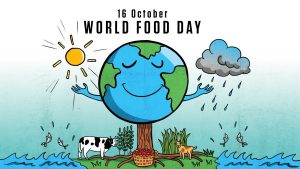Throughout the year, the Food Rights Alliance commemorates a number of days and events national and international that identify with her work of fighting hunger and malnutrition. But, none of these speak as closely to FRA’s heart as the World Food Day.
 In addition to this, the rate of migration within the country’s borders has also continued to grow. This has been fostered by a number of factors including large scale land evictions to avail land for land based investments, and also, the search for better opportunities and living conditions. This is especially seen in the instances of rural-urban migration where populations particularly the youth move from villages where there is minimal opportunity for improving their livelihoods. They thus move to towns in search of employment opportunities and access to better social services.
In addition to this, the rate of migration within the country’s borders has also continued to grow. This has been fostered by a number of factors including large scale land evictions to avail land for land based investments, and also, the search for better opportunities and living conditions. This is especially seen in the instances of rural-urban migration where populations particularly the youth move from villages where there is minimal opportunity for improving their livelihoods. They thus move to towns in search of employment opportunities and access to better social services.
As three-quarters of the extreme poor base their livelihoods on agriculture or other rural activities; creating conditions that allow rural people, especially youth, to stay at home when they feel it is safe to do so, and to have more resilient livelihoods, is a crucial component of any plan to tackle the migration challenge. This can only be done through developing the rural economies. Uganda being an agrarian economy, rural development can only be fostered by increased investment in rural infrastructure, agricultural research, extension services and technology development in order to enhance its agricultural productive capacity.
Visit our Facebook and Twitter pages for more updates on the day’s events.
